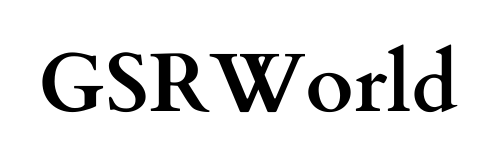The GSR method is well known in one-to-one consultancy. Recently a few projects emerged that integrated the GSR method as a part of their broader agenda. This interview is with Daria Ivanova, who has created her own course on self-presentation, based on the GSR method. What makes these projects possible, what are the results participants gain in them, how does it feel to create a completely new project, these are the questions the interview is about.
This interview was inspired by your recent course on self-presentation. Considering it, my first question sounds intriguing: tell a few words about yourself
My name is Daria Ivanova, my passion is working with professionals who are fascinated with the projects they are doing. However, it is disappointing to see that some people don’t know how to present their results or the way they can be of interest to others. That’s why I created my course, “Manifest Yourself” that helps to master how to communicate personal values to any audience. It is based on the original methodology of self-presentation and perspective on how to manage personal inner states.
I am a GSR-specialist and a professional coach certified by the standards of the International Coaching Federation ICF.
My specialization is emotions and inner states management and increasing general resourcefulness. Among my clients are entrepreneurs, business development experts, and business executives. As a specialist I work with clients’ personal limiting scenarios, I have conducted sessions for owners and top managers of companies with an annual turnover of more than 400 million. I have worked with experts and bloggers with an audience of 100,000 to 2.5 million followers and producers of large-scale online schools. All in all, I have held more than 2,500 sessions.
I have used the experience gained in personal consultations to design the course “Manifest Yourself.”
From your perspective, how is the self-presentation domain structured at the moment? Are there any changes that happened recently?
The amount of people who realize that they need to manage self presentation skills is currently growing. Communication skills and self-presentation for social media skills are becoming of greater importance. It is valid not only for a freelancer who is looking for new clients, but also for those who work as a part of a team and has to interact with members and leaders of the project. Business owners pay attention to developing a personal brand and to promote their companies based on it. For me it is great that so many interesting people have the opportunity to become public figures.
The second trend, as for me, is change in degree of formality. It is relevant both for the language we use in general and in particular in the way we arrange our self-presentation. Being precise to the point,impressive, over highlighting results are not the most important things now. What matters is sincerity and authenticity.
The third trend is also more general, but affecting the self-presentation domain. It is a gradual departure from the text, the growing popularity of video. Nowadays, it is quite normal for one to get a job in a company, one has to create a video business-card.
You are highlighting a necessity to present your professional results and achievements. Is it more challenging compared to the presentation of personal skills? As for you, which types of difficulties do people face?
It is true that some people find it more difficult to talk about their results rather than skills they have. It rests quite often in a psychological domain: imposter syndrome, fear of rejection, not being able to trust your achievements. Among my clients I had found cases, when a person has actually achieved quite significant results, but cannot attribute them. He considers it “luck,” a favorable set of circumstances, or the merits of his team.
Another case is when people have various experiences. How to fit the results of several years of work in 1-2 minutes of self-presentation? What principle should be used to select the facts? What to talk about? And what should I skip?

You are a coach and GSR specialist. How did the idea for this particular course come about? What has shaped it? What team works on it currently?
I came up with the idea for this project quite a long time ago, at the end of 2020. I was looking for an SMM assistant, and I had to choose among people who offered almost the same services in terms of functionality. I made short video calls with the candidates and asked them to tell me about their experience (by the way, none of them had a ready-made self-presentation). I have asked them a few questions like, “What do you like about your job? And what don’t you like?”, using the GSR technique I analyzed their inner state and saw to what extent their inner states and values were aligned with my goals. I chose my assistant that time and was very satisfied with my choice. When I shared this story with my followers, I saw great interest in the subject. It turned out that this question is up-to-date – almost everyone has to tell people about themselves and their work. Freelancers and professionals – to attract new clients, company-owners — in order to sign contracts with their key partners, employees – at interviews, when promotion is needed, etc.
Then there was a long period of searching how to shape the course: development of a methodology and final design. I needed to integrate GSR tools that were designed for one-on-one work into a course, along with recorded lessons and group work. The methodology and marketing training I had has helped me on it.
Currently, the team of my course includes a project-manager, visual presentation specialist, web-page designer. I plan to extend it.
Your course includes an opportunity to work with inner states. What does it mean? What does it change? Can you give some examples of “before and after”?
Yes, indeed, regular programs in the field of public presentation usually stop at the stage of forming the skill: to prepare the text-basis for the speech and the skill of speaking (voice, articulation, gestures, etc.). My project “Manifest Yourself” is more about working with the speaker’s inner state: how a person feels while presenting and what state he unconsciously transmits to the audience.
The GSR-specialist skills allow me to deeply focus on a person’s inner state. As a result, a person not only begins to feel more confident and satisfied during the presentation, but also his deep emotional patterns affecting the contact with other people change.

This interview takes place after your course is finished for the first time. And you are about to start it for the second time. What became memorable for you about your first group? Were there any insights or things that had surprised you?
Sure. For example, one of the participants shared that after the GSR-sessions and working on the tasks during the course, she stopped comparing herself to others, and that allowed her to communicate in an easier way. I remember my own impressions and those of the participants of the course, when at a live meeting at the end of the course she held a self-presentation. We all gasped, so different were the “before” and “after”.
The second participant, an owner of a company, said that after the GSR-sessions and work on her self-presentation she had a revelation: “Everything I tell you about – is me!” She was able to appropriate her results.
And there was a very unusual but cool case. A woman at the course, an expert in her field with tremendous experience. But she had no media credentials. Before the course, she was constantly blaming herself for not being present in social media: Instagram, YouTube, personal blog, etc. Her ultimate result after the course was that she allowed herself to decide what is her own way and pace of presenting herself. She has allowed herself to decide for herself and not to chase expectations.
What do you notice in the participants of your course: what is easy for them and where do they find challenging?
According to my experience, the hardest thing is to start talking about yourself in general. It happens when one turns on the camera, records the first video, stammers and does not know what to say. And sees himself from the side.
A lot of people are very afraid of this first phase and can not complete it. Therefore I, as a project host, try to make a point that the ability to talk about yourself, to speak publicly, is an acquired skill. Everyone who we like to listen to on social media now and whom we admire was not born with this skill.
Regarding the easy parts: it’s easy to work through an algorithm. In the course, I offer several self-presentation schemes. People love plans, and they tend to have an easy time working from a plan.
What is the current geography of participants in your project? Is there any specificity depending on their country of residence. For those who work in international projects, the specifics of communication are somehow taken into account in your course, maybe something that is important in self-presentation in this case.
Currently there were participants from different cities in Russia, Israel, Switzerland, Great Britain, and the Czech Republic. The course is in Russian and does not go into the peculiarities of communication in other countries’ context. However, I know that some participants, using the schemes learned in the course, adapted them and then created self-presentations for themselves in other languages.





